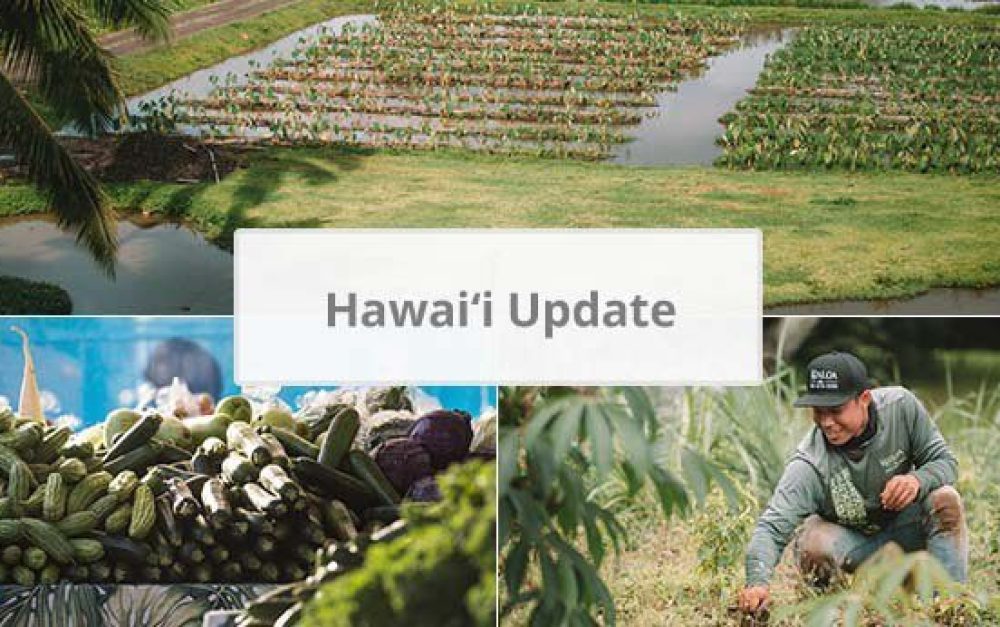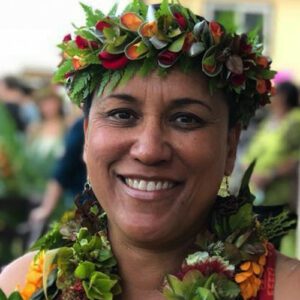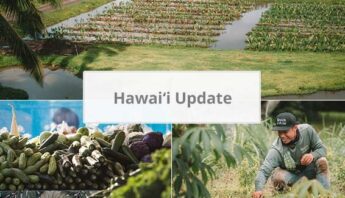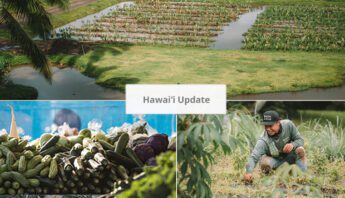The relationship to the land, or ‘Āina, is at the core of our being. The food we grow does more for us than sustaining our bodies, it also “feeds” us mentally and spiritually.
In this newsletter, we are focusing on two important movements, and we would appreciate your support. It’s the government’s kuleana to minimize community exposure to harm, just as we have a kuleana to our land: to care for it and to respect it, and in return, our land has the kuleana to feed, shelter, and clothe us. We must maintain balance within society and with our natural environment.
Wēlina mai kākou,
The relationship to the land, or ‘Āina, is at the core of our being. The food we grow does more for us than sustaining our bodies, it also “feeds” us mentally and spiritually.
In this newsletter, we are focusing on two important movements, and we would appreciate your support. It’s the government’s kuleana to minimize community exposure to harm, just as we have a kuleana to our land: to care for it and to respect it, and in return, our land has the kuleana to feed, shelter, and clothe us. We must maintain balance within society and with our natural environment.
Mahalo nui for the confidence to represent our community of Hawai‘i.
Lorilani Keohokālole
PAN Co-Director of Organizing for the Hawai‘i Region
Lawsuit to clean up Kīkīaola Harbor
Native Hawaiian fishers, surfers, and community environmental protection groups have joined forces to restore the ocean at Kekaha’s Kīkīaola Harbor. They are seeking to enforce the law and protect important fishing grounds from a drainage ditch system that discharges untreated waters contaminated with sediment and pesticides into the nearshore ocean waters during heavy rain events.
The Health Department has designated the nearshore waters around Kīkīaola Harbor as impaired for turbidity, which means the water is not clear and clean. They have detected the restricted use pesticides atrazine and metolachlor in the Kīkīaola ditch at levels toxic to aquatic life and these chemicals can pose a risk to humans who might swim in, drink, or harvest foods from these waters. Other pesticides detected in the Kīkīaola ditch include bentazon, cis-propiconazole, fipronil, simazine, trans-propiconazole, and glyphosate.
On February 9th, Nā Kia‘i Kai, Surfrider Foundation, and Pesticide Action Network, represented by Earthjustice, sent a formal notice of intent to sue the County of Kauaʻi and the state Health Director for failing to abide by a federal court order requiring a permit to discharge pollution at Kīkīaola Harbor. The full press release for this action can be viewed here.
#ShutDownRedHill
Please join us in taking the Red Hill Pledge to permanently shut down the Navy’s underground jet fuel storage facility at that location. PAN stands with the people of Hawai‘i and is among the over eighty organizations and forty-eight state and national legislators that have already signed on to this pledge. Add your voice to ours to make it clear that it is time to #ShutDownRedHill.
Jet fuel released from the U.S. Navy’s 80-year-old, 250 million gallon capacity bulk fuel storage facility in Kapūkakī, or Red Hill, has contaminated O‘ahu’s water system. Since 1943, fuel has leaked from the facility, situated just 100 feet above the underground aquifer that serves as a principal source of drinking water for the island. This includes the release of 27,000 gallons of fuel in 2014 and up to 19,000 gallons in 2021. As a result, Hawai‘i has experienced disastrous public health impacts, the displacement of thousands of families, and the indefinite closure of nearby municipal wells that once provided the water used by 400,000 residents and the majority of O‘ahu’s schools, hospitals, hotels, and businesses.
Over 100 million gallons of fuel remain stored in this aged facility, yet the Navy continues to deny the urgent need to empty the tanks and decommission the Red Hill Facility.
Stand with the people of O‘ahu — take the pledge and #ShutDownRedHill!
PAN is seeking a new Executive Director
Just prior to her final days as Executive Director, Kristin Schafer shared the last installment in her series of reflections on her 25-year career with PAN. I encourage you to read all three parts of this series as it will give you a deeper understanding of what PAN has been doing and what motivates us to keep going.
PAN is actively seeking candidates for the Executive Director role. If you, or someone you know, would be interested in leading an excellent staff, including our Hawai‘i Team, in continuing this work, please take a look at, or share, the job description.
Take Action! Support PACTPA
The regulation of pesticides at the federal level can provide us with the tools we need to address the misuse of pesticides on the islands. PACTPA is a bill that will ban dangerous pesticides, protect farmworkers, and support local community actions from preemption by veto at higher levels of government. For more details, you can read our summary of the bill here.
Let our senators know that we think PACTPA is a step towards a better future for Hawai‘i and the nation!







